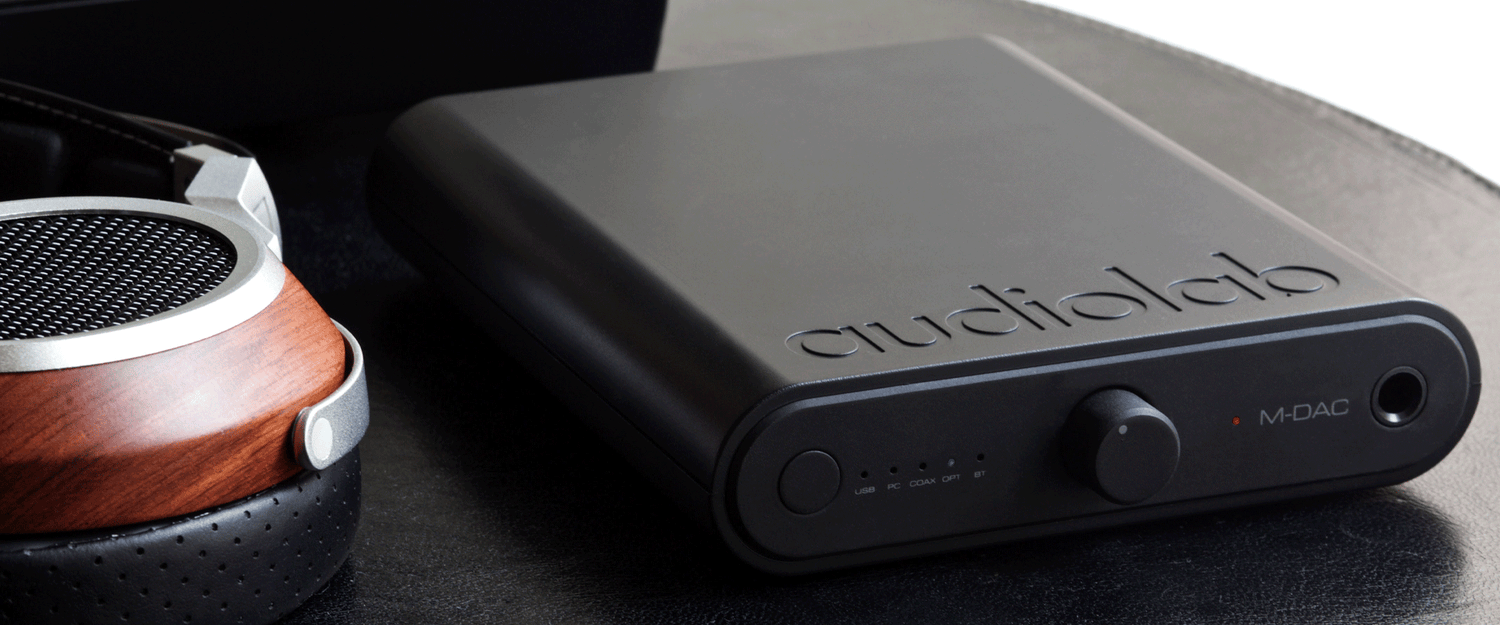Flexible Friend
The M-DAC mini’s design deliberately blurs the lines between home hi-fi DACs and pocket-size portable units. It is ideally sized to sit discretely on a desk or table, with accessible, easy-to-use controls and a traditional analogue volume knob.
There is also sufficient internal space to enable in the inclusion of discreet audiophile-grade components in key circuits, eschewing the space-saving compromise often inherent in portable DAC designs. Yet its diminutive form factor makes the M-DAC mini easy to carry and place wherever it is needed, untethered to the mains supply thanks to its rechargeable battery.












